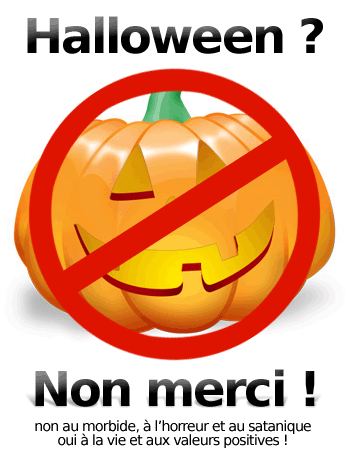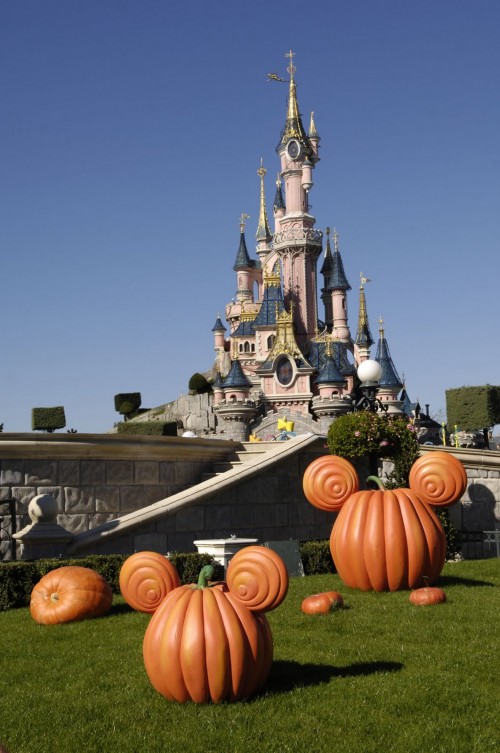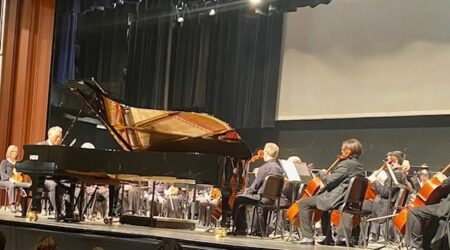The French and “Alloween”
The 31st of October is a highly anticipated day for both children and adults in the United States. The evening of Halloween resonates with the sound of excited children on a mission to collect as much free candy as possible. The knocking of doors, ringing of door bells, the echoing chant of “Trick or Treat” […]
The 31st of October is a highly anticipated day for both children and adults in the United States. The evening of Halloween resonates with the sound of excited children on a mission to collect as much free candy as possible. The knocking of doors, ringing of door bells, the echoing chant of “Trick or Treat” by little masked children adorning everything from sweet princess costumes to deranged movie serial killers. The night goes on, and soon just the brave are left shuffling from door to door with high hopes, while tricksters come out to play: bag of toilet paper, shaving cream, and eggs ready at hand.
For those of us too old to trick or treat, yet too young to have children of our own, the night represents something different. The females look for costumes that have as little cloth to the concept as possible, while men either look for something terrifying, or hilarious. They head out to parties, haunted houses, horror film festivals, and clubs with friends. These experiences and traditions are what help form the ambiance of Halloween for Americans. The whole concept seems so clear, that we often do not think how the holiday is celebrated in other countries.
I grew up with fond memories of Halloween, everything about the month of October building up to that one night of candy collecting mayhem made me happy. In adulthood, I appreciated the holiday just as much even though the events had changed; time to dress up, hang out with friends and go to Halloween-themed parties. Naturally, when I first moved to Paris, I was under the belief that not much would change. Sure, I noticed few window displays depicting Halloween and I didn’t hear people talk about it, but I was assured by French people that they did in fact celebrate Halloween just like the Americans. I commenced planning an elaborate Halloween-themed party, and invited those Halloween-going French friends of mine.
Halloween was finally upon us; hundreds of Euros later and after more than ten consecutive hours of cooking in the kitchen to provide those delicious Halloween-themed foods, the guests started to arrive. Silly me, I was the only person in costume, even though they all agreed to wear one. That seemed to me like red flag number one. Unfortunately, that is not where it stopped. The confused looks at the decorations, food, and intricately themed cocktails is when I realized that the French did not celebrate Halloween like the Americans. In fact, they didn’t seem to celebrate the holiday at all, or have the slightest clue of the concept. Of course I had to wonder why they were under the impression that they celebrated a seemingly nonexistent holiday.
Halloween was never a holiday in France, not until the 1980s at least. During the 1980s, as the world was becoming more global, Paris underwent a surge of foreign students, workers, and immigrants. Slowly, these foreigners began introducing the concept of Halloween to the French. In the late 1990s, the idea finally started to catch on. Disneyland Paris began setting up their typical decorations, advertising special Halloween nights, McDonald’s set up decorations, and little by little the French business world caught on to the marketing prospect that Halloween-themed advertisements and displays could bring. This slowly sparked the interest of the French, as they attempted to understand and partake in this great American tradition. In 2000, Halloween was ranked as the third most important holiday in France, right after Christmas, and New Year’s Eve. After that, the popularity slowly began to decrease, and today very little is done to acknowledge Halloween in France.
During Halloween’s peak in France, the French took a little of each tradition and practiced them on a minimal level. In the early stages of the holiday, trick-or-treating consisted of large groups of children marching down the streets, revolution style, demanding candy from business owners. The process was conducted more like a parade, where the adults stood on the side dishing out candy while the children chanted in unison, “candy or death.” The process did evolve over the years to children trick-or-treating in small groups of friends carrying one basket between them, then sharing the candy at the end of the night while saying, “trick or treat” rather than “treat or death”; I think that was a step forward. In Paris, children go to malls or shopping areas to collect candy due to the difficulty of accessing apartment buildings. French children typically dress up as ghosts, goblins, witches, or vampires. Few can be seen wearing the typical character costumes that one sees in the United States. One tradition that young teenage boys understood well though was the “trick” aspect of the process. Rotten eggs are common lawn ornaments on the first of November. The tradition of the jack-o-lantern is slightly different as well; one per household rather than one per child. The carving has yet to reach the elaborate and time-consuming art which now exists in the US, and probably never will. The basic triangle eyes and nose with a jagged smile is all to be seen in the windows of French houses. Decorating the interior and exterior of houses with zombies, spider webs and the lot never caught on in France.
The adult Halloween culture only has two aspects in common with the American traditions: some dress-up and party. The costumes are different, girls and guys alike dress in scary costumes; nothing sexy, nothing funny. The “Halloween” parties are just normal parties with a few guests in costume. The host does not plan a theme, not even a little black and orange color-mixing. As far as young adults in France are concerned, Halloween is just one more excuse to get together with friends and socialize. The older generation however, does not feel that way.
Not everyone in France is willing to embrace American Halloween traditions. Older generations see the festivities as disrespectful towards the dead, as well as towards Catholics. October 31st through November 2nd is Hallowmas. During these three days French people visit cemeteries, honor the dead, give their respect to all of the saints, and participate in religious events. All Saints Day, celebrated on November 1st is actually a national holiday in France. The 51-88% of French people who claim to be Roman Catholic do not see a connection between the American Halloween traditions, that they believe to have too many Pagan roots, and their religion.
Religion is not the only obstacle determining the success rate of Halloween in France; Americanization plays a large role. The French know that Halloween is not American, as the holiday dates back to Celtic times and continued constantly changing over the years after that. The Irish immigrants brought the concept to the United States during the 1840s. The French are boycotting the American aspects of Halloween, which consist of mass marketing and brain-washing; the whole idea is simply too commercial in France. They see this as another attempt of the Americans to force their culture on them. The French took decades to warm up to the idea of fast food, and even now they do not accept anything other than McDonalds and Kentucky Fried Chicken. Of course, they are open to trying traditions from other cultures, but they are not willing to adopt those foreign traditions as replacements for their own.
Perhaps the French will continue to wear masks, pass out candy, and throw parties, but I think we can safely say that Halloween has had its day in France. The disrespectful display of activities towards the dead, as well as honored saints combined with the invasion of American culture is enough for the French to view Halloween as a past trend, and nothing more.
Jacqueline Perrier-Gillette is currently a resident of Paris, France, where she lives with her husband. Together the two of them operate their small translation company, giving Jacqueline the opportunity to observe the French and their culture up close. She is an avid reader, writer, and student of foreign languages.
By Jacqueline Perrier-Gillette







